INTERVIEW CROISÉE
SOPHIE GERMAIN
After the restructure at Thiénot, which then became Arvitis, I took over initially based in Champagne and not including wine, and since 2024 my remit has extended to include Bordeaux. In recent years, suppliers’ selection criteria have evolved and there is greater emphasis on origin and the type of goods we purchase for the Group.
PASCALE LAROUI
I joined CVBG Dourthe Kressmann (prior to the buy-out by the Thiénot family) via management control. I took over the financial management of the Bordeaux division some twenty years ago. For a year now, as part of the reorganisation of its business support functions, part of my role has shifted to Arvitis to support the group on various overarching HR projects.
Staff travel, whether business trips or simply commuting to and from the workplace, is a significant contributor to the company’s carbon footprint. In our case, staff travel accounts for 13% of emissions in Champagne and Bordeaux. Within the Group, discussions and the first steps towards sustainable, low-emission travel are starting to take shape. Pascale and Sophie tell us more in this interview.
1 – What initial steps have been introduced to reduce carbon emissions relating to staff travel?
SG: Three initiatives are now in place to reduce the company’s carbon footprint specifically relating to employee travel.
To comply with France’s Mobility Orientation Law (LOM), which requires companies to adopt a greener vehicle fleet and reduce emissions by 70% by 2030, renewal of our company fleet began in 2023. Today, 34% of the Group’s leased vehicle fleet is electric, self-charging hybrid or plug-in hybrid.
In parallel, if any of our colleagues want to trial an alternative to a company car, we are considering various more sustainable solutions, including bicycle, public transport and car sharing schemes etc.
In addition, from this year, three electric cars are available to colleagues at Châlons, Taissy and Ludes to help cut back on carbon emissions during commutes between sites, for visits to suppliers, clients and occupational health, and also for colleagues from other divisions during visits to our offices in Champagne. A similar system in Bordeaux is currently under review.
Finally, updates to the Notilus mobility management system in the first half of 2024 now mean that any colleague inputting transport expenses must also indicate the amount of CO2 emissions generated.
This allows the company to comply with the EU CSRD directive relating to carbon emissions, while at the same time raising awareness of CO2 emissions among all employees.
2 – A working group has been formed to come up with a business travel strategy which should be rolled out imminently. What are the major challenges involved in getting this charter off the ground?
SG: The greatest challenge relating to business travel is definitely reducing air travel, particularly domestic flights.
Air travel from Reims-Bordeaux will emit 52 times more GHGs (Greenhouse Gases) than by train and takes 1.5 times longer according to comparison site https://www.greengo.voyage/en.
We would like to aim for a Zero domestic flight policy, but for the moment there are still some cases where it is less straightforward, such as with cross-border connections.
3 – What would be the greatest benefit of the charter? And what will make you most proud?
SG: Firstly, delivering the charter implies that we are moving forwards and that we have the means to lower CO2 emissions.
From a collaborative, people
4 – What are the main challenges in introducing a sustainable mobility policy?
Pascale Laroui : Like many companies based across multiple sites, and both industrial and agricultural in profile, personal vehicle usage accounts for the greater part of transport. The challenge is to encourage staff to shift their habits towards more low-emission forms of transport, so by bike, on foot, public transport, car share or at least limit the use of combustion-powered cars.
Adopting low-emission transport often requires more organisation and effort. We need to make these alternative forms of transport more accessible and attractive, to ensure these choices make sense and add value.
In addition, cars are an important social statement and have been firmly rooted in our culture for many years. While those struggling to give up their own vehicle are steered towards small electric solutions such as the ZOE (see p6), they remain firmly attached to much larger vehicles, even EVs, with a significant carbon impact. We need to change our mindset regarding SUVs and champion and disseminate a positive image of small electric cars
5 – What solutions are available and in development, at the Greensquare site for example?
PL: For those eligible, we offer a transport credit card in partnership with ALD Move. The card is used solely to pay for transport classed as sustainable and is credited with 26€ each month.
It is a way for those who want to, to access subsidies on travel cards or books of tickets for public transport, bicycle or electric scooter hire, or car sharing on platforms such as Karos or BlaBlaCar Daily.
The advantage of the card is to allow users to mix up different forms of transport if they so require.
The solutions we would like to promote internally and that seem the most suited to rural settings are bicycle, on sufficiently safe routes (cycle route network), and car share pools.


